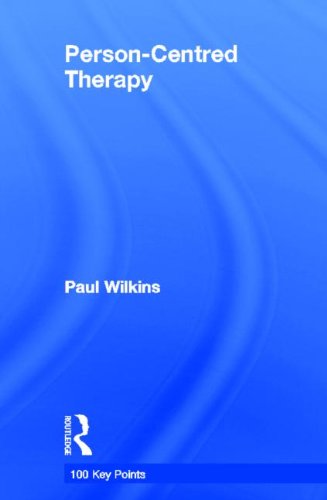

Most ebook files are in PDF format, so you can easily read them using various software such as Foxit Reader or directly on the Google Chrome browser.
Some ebook files are released by publishers in other formats such as .awz, .mobi, .epub, .fb2, etc. You may need to install specific software to read these formats on mobile/PC, such as Calibre.
Please read the tutorial at this link: https://ebookbell.com/faq
We offer FREE conversion to the popular formats you request; however, this may take some time. Therefore, right after payment, please email us, and we will try to provide the service as quickly as possible.
For some exceptional file formats or broken links (if any), please refrain from opening any disputes. Instead, email us first, and we will try to assist within a maximum of 6 hours.
EbookBell Team

4.0
56 reviewsPerson-centred therapy, based on the ideas of the eminent psychotherapist Carl Rogers, is widely practised in the UK and throughout the world. It has applications in health and social care, the voluntary sector and is increasingly relevant to work with people who are severely mentally and emotionally distressed. This book offers a comprehensive overview and presents the core theories, advances and practices of the approach in a concise, accessible form.
Person-Centred Therapy: 100 Key Points begins with a consideration of the principles and philosophy underpinning person-centred therapy before moving to a comprehensive discussion of the classic theory upon which practice is based.
Further areas of discussion include:
Finally criticisms of the approach are addressed and rebutted, leading readers to the wider person-centred literature. As such this book will be particularly useful to students and scholars of person-centred therapy, as well as anyone who wants to know more about one of the major therapeutic modalities.